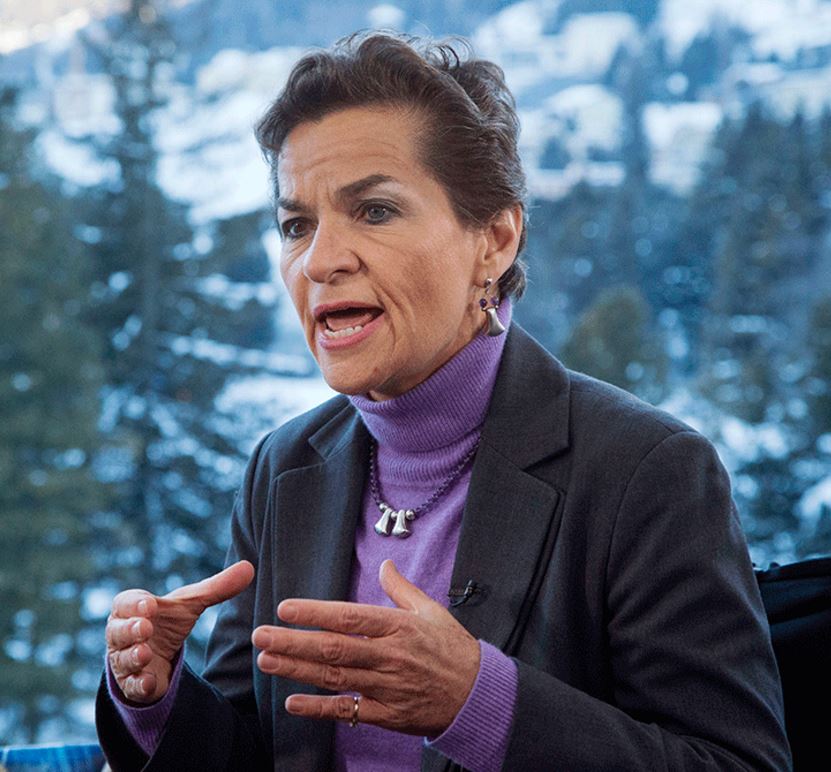A shocking statement was made by a United Nations official Christiana Figueres at a news conference in Brussels. Figueres admitted that the Global Warming conspiracy set by the U.N.’s Framework Convention on Climate Change, of which she is the executive secretary, has a goal not of environmental activists to save the world from ecological calamity, but to destroy capitalism.
She said very casually:
"This is the first time in the history of mankind that we are setting ourselves the task of intentionally, within a defined period of time, to change the economic development model that has been reigning for at least 150 years, since the Industrial Revolution."She even restated that goal ensuring it was not a mistake:
"This is probably the most difficult task we have ever given ourselves, which is to intentionally transform the economic development model for the first time in human history."I was invited to a major political dinner in Washington with the former Chairman of Temple University since I advised the University with respect to its portfolio. We were seated at one of those round tables with ten people. Because we were invited from a university, they placed us with the heads of the various environmental groups. They assumed they were in friendly company and began speaking freely. Dick Fox, my friend and Chairman of Temple, began to lead them on to get the truth behind their movement. Low and behold, they too admitted it was not about the environment, but to reduce population growth. Dick then asked them, "Whose grandchild are we trying to prevent from being born? Your’s or mine?"
All of these movements seem to have a hidden agenda that the press helps to misrepresent all the time. One must wonder, at what point will the press realize they are destroying their own future?
By Martin Armstrong
Source: Armstrong Economics
Figueres: First Time the World Economy is Transformed Intentionally
3 February 2015 - The Top UN Climate Change Official is optimistic that a new international treaty will be adopted at Paris Climate Change conference at the end of the year. However the official, Christiana Figueres, the Executive Secretary of UNFCCC, warns that the fight against climate change is a process and that the necessary transformation of the world economy will not be decided at one conference or in one agreement.
"This is probably the most difficult task we have ever given ourselves, which is to intentionally transform the economic development model, for the first time in human history", Ms Figueres stated at a press conference in Brussels.
"This is the first time in the history of mankind that we are setting ourselves the task of intentionally, within a defined period of time to change the economic development model that has been reigning for at least 150 years, since the industrial revolution. That will not happen overnight and it will not happen at a single conference on climate change, be it COP 15, 21, 40 - you choose the number. It just does not occur like that. It is a process, because of the depth of the transformation."
Lima Draft
The so called 'Lima draft', which was adopted in December 2014 at the UN Climate Conference in Lima (Peru) will be subject of further negotiations by members states, starting in Geneva next week. Two rounds of negotiations are expected before the Climate Change Conference convenes in Paris in December.
The current draft is 39 pages including options, sub-options and brackets. The negotiators in Geneva have until 13 February to "manage and streamline" the draft. According to Ms Figueres, there are a lot of differences now in comparison to the run up to the Copenhagen Summit on Climate Change in 2009, during which a successor treaty to the Kyoto protocol on limiting CO2 emissions was last attempted. She pointed out that with one year to go there already is a draft, whereas there was none until the start of the Copenhagen Summit.
Four goals
Figueres, however, pointed out that the legal treaty is only one of four important parts of the process. In addition to the treaty, there are the current Climate Change actions from now and until 2020, the financing packages and the so-called Intended National Determined Contributions (INDCs). These are the actions that countries intend to take under a global agreement from 2020 and have to be publicly outlined before the start of the conference. It is expected that all major economies will deliver their plans in time: the US, China, and the European Union have already shown their cards.
Maximum level of ambition
Ms Figueres went on to say that the sum total of the national contributions are not expected to be enough to limit the increase of world temperature to 2*C.
"That is not a discovery, that is not a breaking news item. We need to get to the maximum level of ambition of collective INDCs because what we are going to have to do all of the time is to close the gap between what science tells us where we have to be and where we actually are….But the point is will we be at the end destination? I would argue, yes."
Christiana Figueres was appointed as the new Executive Secretary of the United Nations Framework Convention on Climate Change (UNFCCC) by UN Secretary-General Ban Ki-moon in 2010, and was reappointed for a second three year term in July 2013.
By UNRIC Brussels
Source: UNRIC Brussels
crown gold


No comments:
Post a Comment
I thank for the comment!